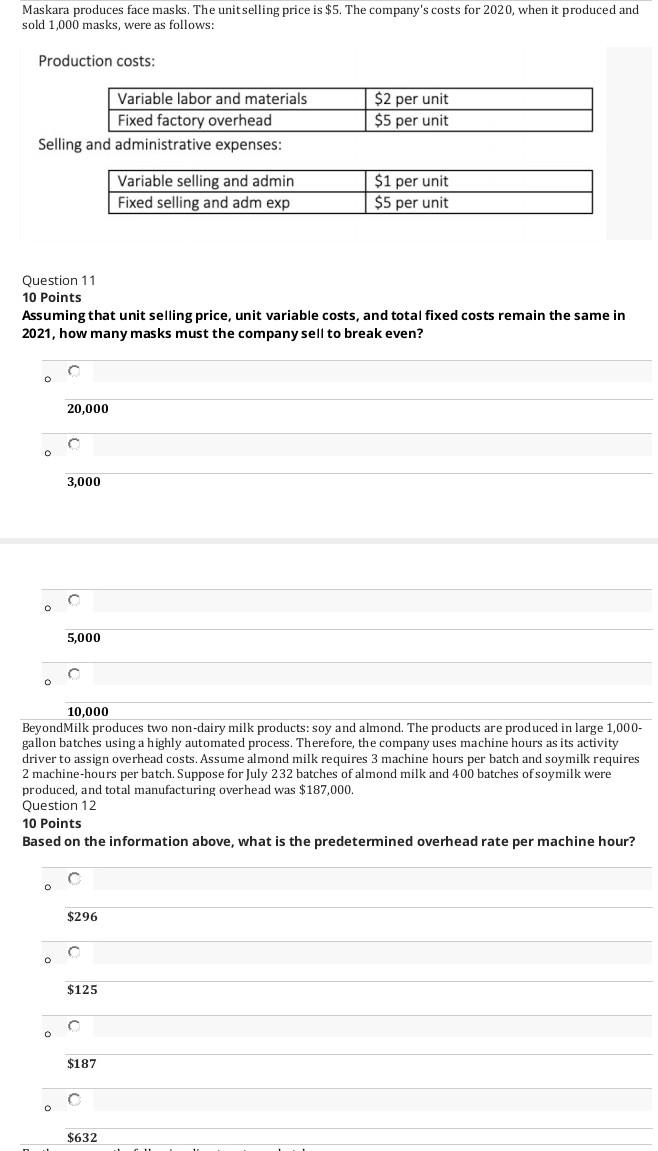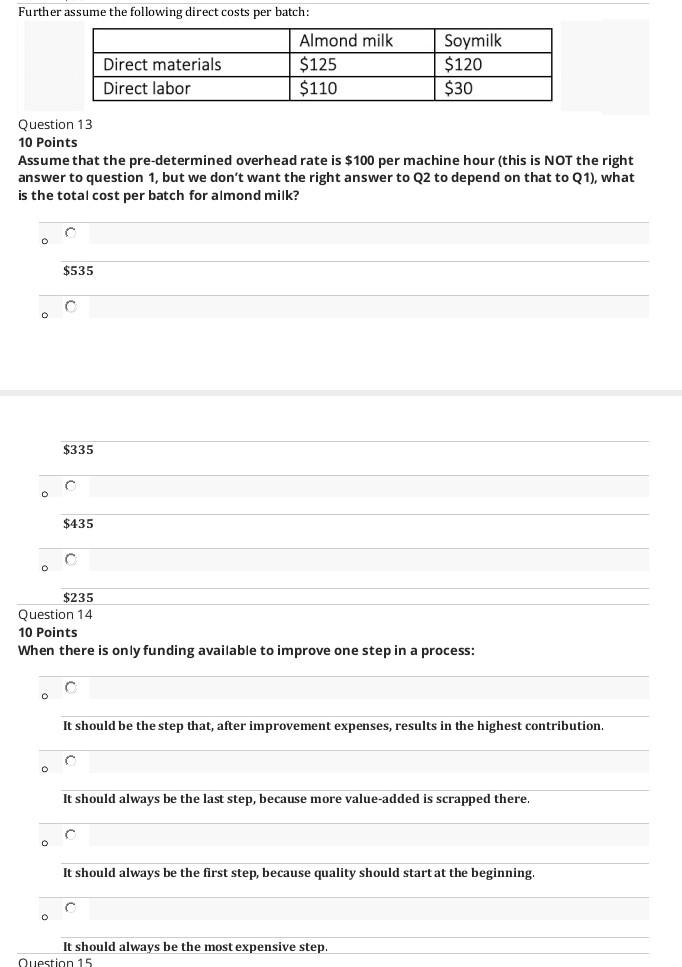Answered step by step
Verified Expert Solution
Question
1 Approved Answer
first there is statement of question after this question start please answer question 12,13and 14 because it is related to each other please answer me

first there is statement of question after this question start please answer question 12,13and 14 because it is related to each other please answer me fast ASAP

Maskara produces face masks. The unitselling price is $5. The company's costs for 2020, when it produced and sold 1,000 masks, were as follows: Production costs: Variable labor and materials Fixed factory overhead Selling and administrative expenses: $2 per unit $5 per unit Variable selling and admin Fixed selling and adm exp $1 per unit $5 per unit Question 11 10 Points Assuming that unit selling price, unit variable costs, and total fixed costs remain the same in 2021, how many masks must the company sell to break even? 0 20,000 O 3,000 0 5,000 0 10,000 Beyond Milk produces two non-dairy milk products: soy and almond. The products are produced in large 1,000- gallon batches using a highly automated process. Therefore, the company uses machine hours as its activity driver to assign overhead costs. Assume almond milk requires 3 machine hours per batch and soymilk requires 2 machine-hours per batch. Suppose for July 232 batches of almond milk and 400 batches of soymilk were produced, and total manufacturing overhead was $187,000. Question 12 10 Points Based on the information above, what is the predetermined overhead rate per machine hour? O $296 0 $125 0 $187 0 $632 632 Further assume the following direct costs per batch: Almond milk Direct materials $125 Direct labor $110 Soymilk $120 $30 Question 13 10 Points Assume that the pre-determined overhead rate is $100 per machine hour (this is NOT the right answer to question 1, but we don't want the right answer to Q2 to depend on that to Q1), what is the total cost per batch for almond milk? $535 $335 0 $435 O $235 Question 14 10 Points When there is only funding available to improve one step in a process: o It should be the step that, after improvement expenses, results in the highest contribution. O It should always be the last step, because more value-added is scrapped there. O It should always be the first step, because quality should start at the beginning. o It should always be the most expensive step. Question 15
Step by Step Solution
There are 3 Steps involved in it
Step: 1

Get Instant Access to Expert-Tailored Solutions
See step-by-step solutions with expert insights and AI powered tools for academic success
Step: 2

Step: 3

Ace Your Homework with AI
Get the answers you need in no time with our AI-driven, step-by-step assistance
Get Started


